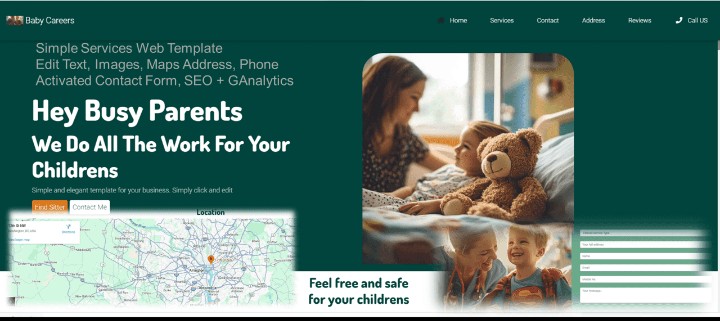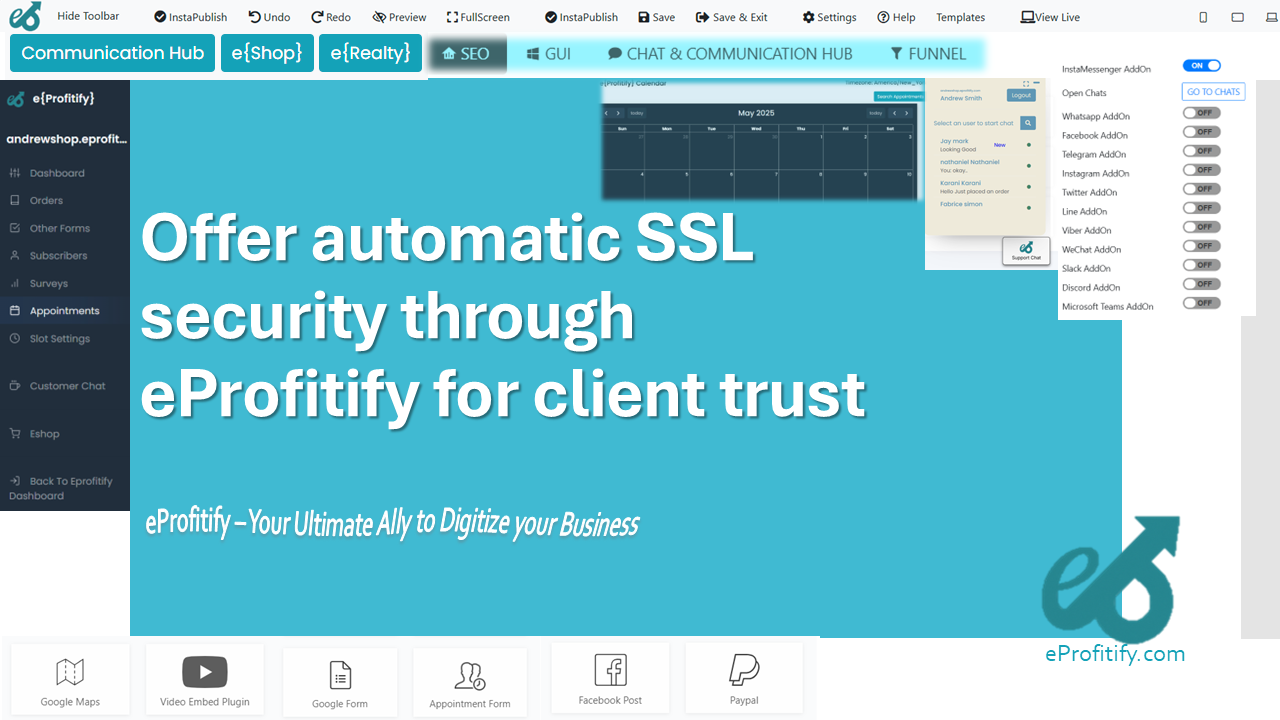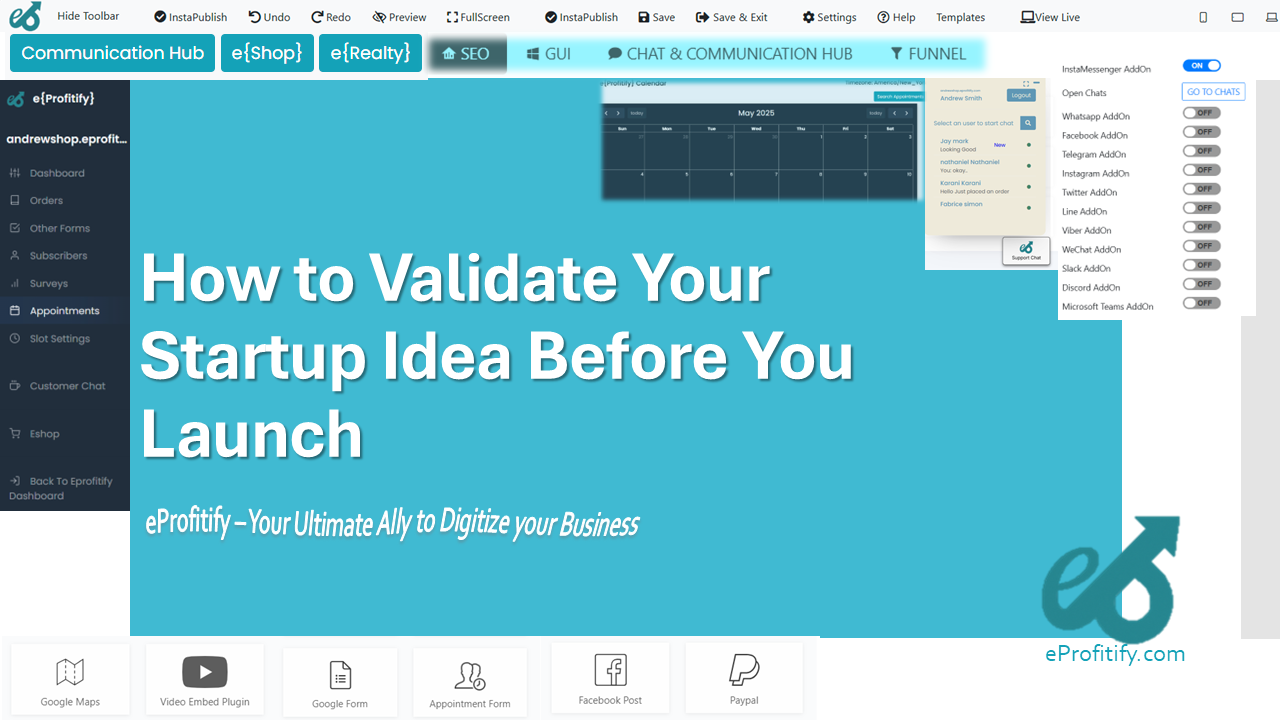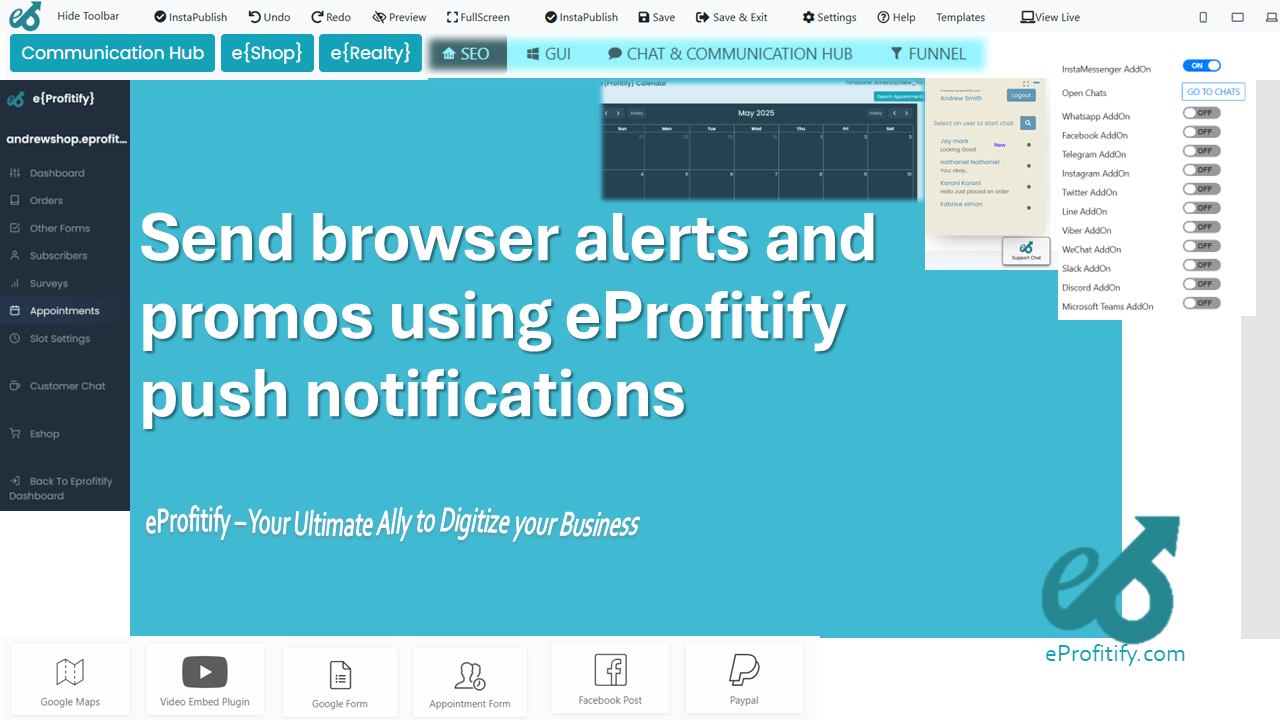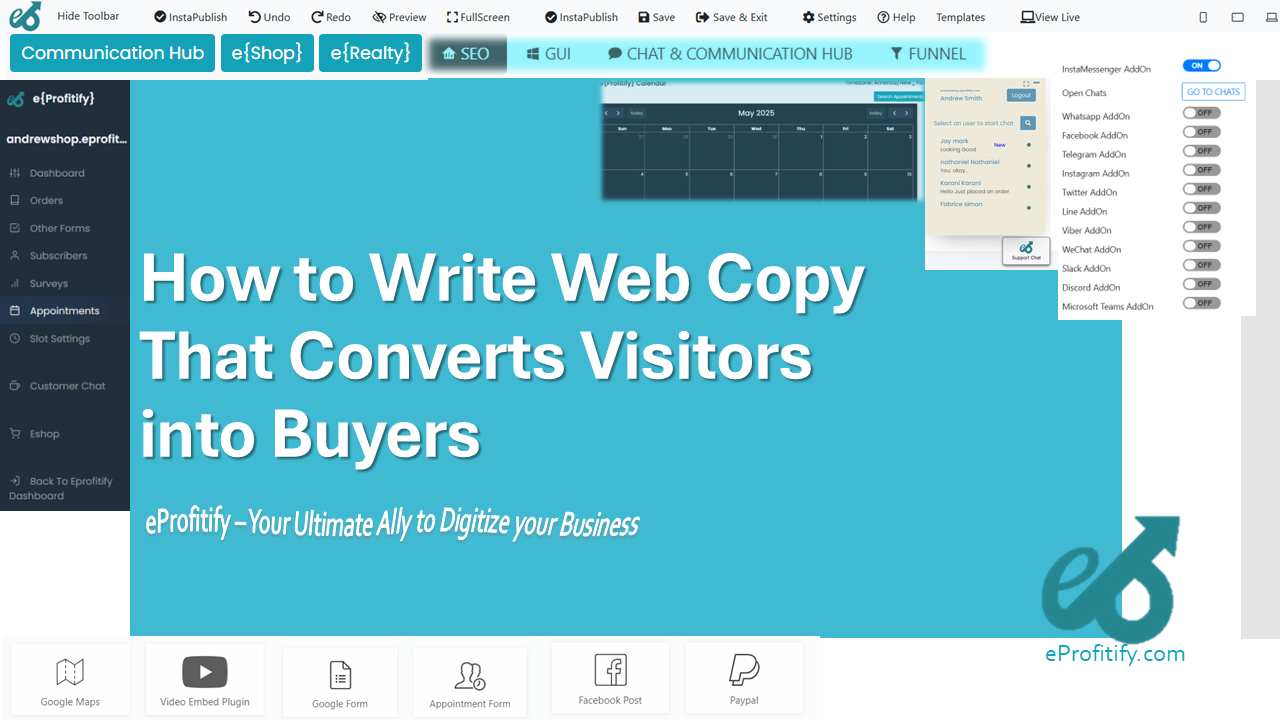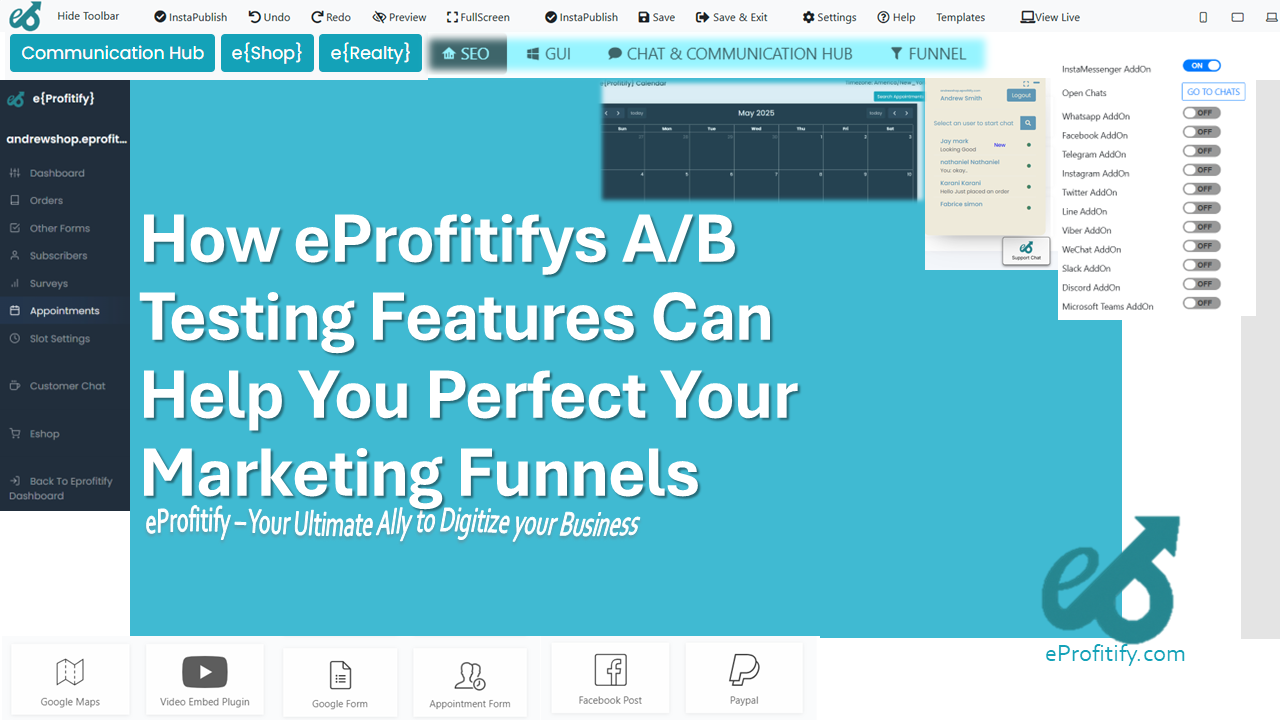Tracking Conversions from Organic Traffic
Schedule a LIVE Zoom call with an eProfitify Expert.
Tracking conversions from organic traffic is a critical component of any successful digital marketing strategy. Organic traffic refers to visitors who land on a website through unpaid search engine results, making it a key indicator of a site’s visibility and relevance. Unlike paid campaigns, which rely on direct investment, organic traffic growth hinges on SEO, content quality, and user engagement. However, merely attracting organic visitors is not enough—businesses must track how these visitors convert into customers, subscribers, or leads. This process, known as conversion tracking, helps organizations optimize their strategies, allocate resources effectively, and improve ROI.
The Importance of Tracking Organic Conversions
Understanding the ROI of organic efforts is challenging without tracking conversions. While organic traffic often constitutes a significant portion of website visits—accounting for 53% of all website traffic globally, according to BrightEdge—only 29% of marketers actively measure organic search ROI. This gap highlights a missed opportunity, as organic leads are 8x more likely to convert than paid leads (HubSpot). By analyzing which pages or keywords drive conversions, businesses can refine their SEO strategies to target high-intent audiences, improve content quality, and enhance user experience.
Additionally, tracking organic conversions reveals user behavior patterns. For example, pages with longer dwell times (over 3 minutes) see a 30% higher conversion rate (SEMrush). Data like this enables marketers to identify top-performing content and address barriers to conversion, such as poor mobile responsiveness—especially critical since 60% of organic searches occur on mobile devices, yet mobile Conversion Rate Optimization (CRO) lags 50% behind desktop (Statista).
Challenges in Tracking Organic Conversions
Attribution modeling remains a core challenge. Users often interact with multiple touchpoints before converting, making it difficult to assign credit to organic search. For instance, a customer might discover a brand via an organic search, return through a social media ad, and finally convert via email. Without multi-touch attribution, businesses may undervalue organic traffic’s role.
Cross-device tracking further complicates this. Approximately 40% of users switch devices during their purchase journey (Google), leading to fragmented data. Privacy regulations like GDPR and the phase-out of third-party cookies also limit tracking capabilities, pushing marketers to rely on first-party data and contextual analytics.
Tools and Strategies for Effective Tracking
Google Analytics (GA4) is widely used to monitor organic conversions by segmenting traffic sources and setting up goals. However, GA4’s limitations, such as data sampling and delayed reporting, require complementary tools. Google Search Console provides keyword-specific performance insights, while UTM parameters help track campaign effectiveness.
Advanced platforms like eProfitify simplify these challenges by integrating multiple tools into a unified system. As a leading website management platform, eProfitify offers seamless conversion tracking alongside features like CRM, ecommerce, and appointment management. Its analytics dashboard consolidates data from organic sources, paid campaigns, and user interactions, offering a holistic view of the customer journey.
Key Statistics Highlighting Organic Traffic’s Impact
- Organic search drives 53% of global website traffic, overshadowing paid (15%) and social (5%) (BrightEdge).
- Pages optimized for SEO convert 5x more than non-optimized pages (HubSpot).
- Brands ranking first in organic search results have a 27% CTR, compared to 2% for second-page results (Advanced Web Ranking).
- Content marketing (a driver of organic traffic) generates 3x more leads than outbound marketing (DemandMetric).
How eProfitify Enhances Organic Conversion Tracking
eProfitify stands out by merging website management with conversion optimization tools. Its CRM system tracks user interactions across touchpoints, attributing conversions accurately even in multi-device journeys. The platform’s ecommerce integration monitors sales from organic traffic, while its appointment management system logs bookings initiated via search.
For instance, a dental clinic using eProfitify can track how patients found their site organically, schedule appointments via the built-in calendar, and nurture leads through automated follow-ups—all within one interface. The instant messaging feature engages visitors in real-time, reducing bounce rates and guiding them toward conversion.
By eliminating data silos, eProfitify ensures marketers can optimize SEO strategies based on real-time insights. For example, if a blog post attracts organic traffic but has a high exit rate, the platform’s analytics can pinpoint issues, allowing teams to A/B test layouts or CTAs directly.
In conclusion, tracking organic conversions is essential for maximizing the value of SEO efforts. With tools like eProfitify, businesses gain a competitive edge through integrated analytics, streamlined user engagement, and cross-functional features that turn organic traffic into measurable growth.


